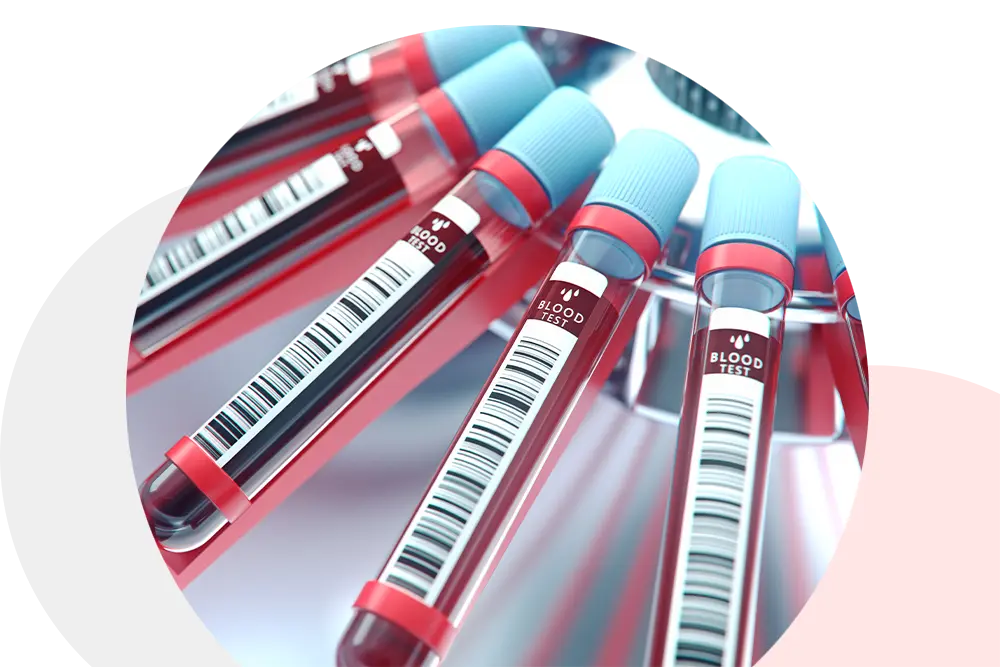Our Process
We begin with a detailed history-taking and perform a thorough physical examination of the pet. If necessary, the veterinarian may recommend taking a blood sample from the pet. The blood sample is then sent to a laboratory for analysis. Once the results are received, the veterinarian carefully reviews them. Based on the findings of the bloodwork, the veterinarian will make appropriate recommendations or develop a tailored treatment plan to address any health issues or concerns detected through the blood tests. This process ensures that the pet’s health is closely monitored, and necessary actions are taken to maintain or improve their well-being.
Common Reasons Why Your Pet Might Need Blood Work
Blood panels or blood tests, analyzes are used as a diagnostic tool to help assess their overall health and detect any underlying medical conditions. The blood work typically includes various tests that measure different components of the blood, such as:
1. Complete Blood Count (CBC): This test examines the different types of blood cells, including red blood cells, white blood cells, and platelets. It helps detect anemia, infections, and certain blood disorders.
2. Blood Chemistry Panel: This panel evaluates the levels of various substances in the blood, such as electrolytes, glucose, liver enzymes, kidney function markers, and proteins. It provides insights into the pet’s organ function, metabolism, and general health.
3. Thyroid Function Tests: These tests measure thyroid hormone levels, which are crucial for evaluating thyroid health and detecting thyroid-related issues.
4. Pancreatic Enzyme Tests: These tests assess the functioning of the pancreas and help diagnose pancreatitis or other pancreatic conditions.
5. Coagulation Profile: This test evaluates the pet’s blood clotting ability and helps diagnose bleeding disorders or monitor pets on certain medications.
6. Hormone Level Testing: This may include tests for cortisol, testosterone, estrogen, or progesterone levels to assess hormonal imbalances or reproductive health.
7. Infectious Disease Testing: Blood work may include tests for specific infectious diseases, such as heartworm, Lyme disease, or feline leukemia virus (FeLV).
Blood work for pets is a valuable diagnostic tool used by The Mobile Vet Company to assess a pet’s overall health, detect diseases at an early stage, monitor chronic conditions, and guide appropriate treatment plans. It provides crucial information that, along with the pet’s history and physical examination, helps our veterinarians make informed decisions regarding your pet’s care and well-being.
What our Clients say
Don’t take it from us, hear what our clients say

